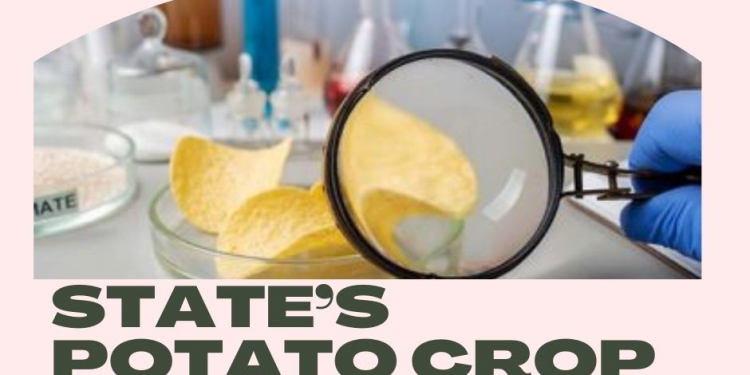The US Commonwealth of Pennsylvania’s chip potato industry absorbs annually almost 83,000 tons of primarily white spuds, locally produced. To keep that flow, the farmers rely on the potato research program at Penn State’s College of Agricultural Sciences. That way, the growers help improve the quality and quantity of their crops while staying informed of consumer trends.
Penn State’s potato research program, led by Xinshun Qu, associate research professor, is subordinate to the Department of Plant Pathology and Environmental Microbiology. His team works closely with potato growers to identify commercial potato production and disease problems and conducts laboratory and field experiments designed to provide critical information to solve these problems. The researchers share their findings through Penn State Extension programs and a publicly available annual report.
The team evaluates about 200 potato varieties/breeding clones in variety evaluation trials and between 200 and 400 varieties and clones in disease management trials each year, according to research technologist Mike Peck, who’s been with the program for nearly 40 years.
The work takes place at the Russell E. Larson Agricultural Research Center at Rock Springs, Centre County, and grower sites in different parts of the state.
The team has contributed to developing more than a dozen popular varieties, including the Lehigh, named for Pennsylvania’s Lehigh Valley, which served as a variety testing field site. The potato offers consistently high yields across very diverse growing regions.
Right now, the experts are helping to evaluate how another consumer favorite, the Russet potato, grows in Pennsylvania’s climate. Russets tend to be larger than traditional white potatoes and are a top choice for baking, mashing, and french fries.
The Penn State scientists also collaborated with Cornell University to release two potato chip varieties, Lamoka and Waneta.
PennState experts recently estimated that the value of potato chip production from Lamoka and Waneta for 2020 was more than USD1bn.







